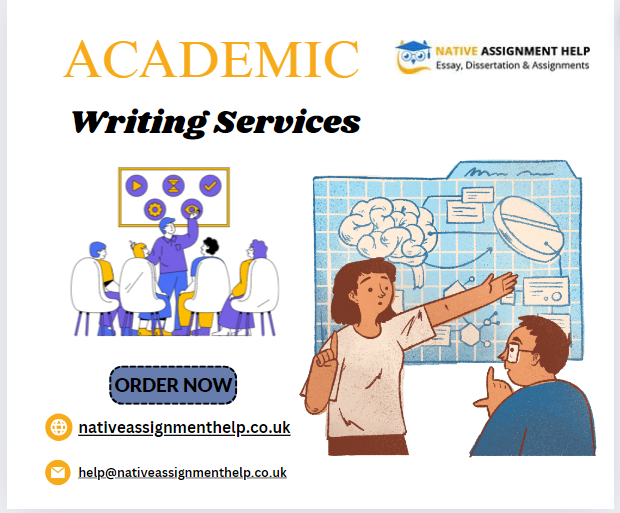
In the digital age, academic writing services have become increasingly popular among students. These services promise to deliver high-quality essays, research papers, and other academic assignments, often with quick turnaround times. However, the rise of these services has brought about a significant concern: plagiarism. This article explores the growing issue of plagiarism in academia, the role of academic writing services, and how institutions and students can address this challenge.
What are Academic Writing Services?
Academic writing services are companies or individuals that offer to write academic papers for students. These services can range from essay writing and research papers to dissertations and thesis assistance. The scope of services offered often includes editing, proofreading, and sometimes even tutoring.
The Appeal of Academic Writing Services
Why do students turn to these services? The reasons are varied:
- Convenience and Time-Saving: Students often juggle multiple responsibilities, including part-time jobs and extracurricular activities. Writing services offer a way to save time and meet deadlines.
- Stress and Pressure Relief: The academic pressure to perform can be overwhelming. Writing services provide a way to alleviate this stress by offloading some of the work.
- Quality and Expertise: These services often employ professional writers with expertise in various fields, promising high-quality work that can potentially improve grades.
Plagiarism: An Academic Offense
Plagiarism is the act of using someone else’s work or ideas without proper attribution. It can take many forms, including:
- Direct Plagiarism: Copying text verbatim without citation.
- Self-Plagiarism: Reusing one’s own previous work without permission.
- Mosaic Plagiarism: Piecing together information from various sources without proper attribution.
- Accidental Plagiarism: Unintentionally failing to cite sources correctly.
The consequences of plagiarism are severe, ranging from failing the assignment to expulsion from the institution.
The Connection Between Writing Services and Plagiarism
Many academic writing Help operate in a grey area. While some promote themselves as offering “model” papers meant to be used as guides, others blatantly encourage students to submit the purchased work as their own. This practice directly contributes to plagiarism, as students may be tempted to take the easy way out.
Why Students Use Academic Writing Services
Several factors drive students to use these services:
- Lack of Time: Balancing coursework with other commitments can leave little time for writing papers.
- Academic Pressure: The desire to achieve high grades can push students towards unethical shortcuts.
- Lack of Understanding: Some students may not fully understand what constitutes plagiarism or how to avoid it.
Impact on Academic Integrity
The widespread use of academic writing services undermines the integrity of the educational system. It erodes trust between students and educators and devalues the achievements of honest students. Moreover, it can have long-term consequences for graduates who lack the skills they purportedly learned.
Detection and Prevention of Plagiarism
Institutions are increasingly using technology to combat plagiarism. Tools like Turnitin and Grammarly help detect similarities between student submissions and existing content. However, prevention is equally important. Educating students about plagiarism, its consequences, and how to avoid it is crucial.
The Role of Educational Institutions
Educational institutions play a vital role in combating plagiarism. They must:
- Educate Students: Provide comprehensive training on academic integrity and plagiarism.
- Support and Resources: Offer resources like writing centers and tutoring to help students develop their writing skills.
- Culture of Integrity: Foster an environment where academic honesty is valued and upheld.
Ethical Writing Services
Not all writing services are unethical. Some offer legitimate support, such as editing and proofreading, which can help students improve their writing. Ethical writing services should:
- Promote Learning: Offer services that enhance the student’s understanding and skills.
- Transparency: Clearly state that their products should not be submitted as the student’s own work.
- Quality Assurance: Ensure all work is original and properly cited.
Alternatives to Academic Writing Services
Students seeking help with their writing have several alternatives:
- Campus Writing Centers: Many institutions offer free writing assistance to students.
- Peer Tutoring Programs: Peer tutors can provide guidance and support.
- Online Writing Resources: Websites like Purdue OWL offer valuable resources on writing and citation.
Case Studies
Examining real-world examples can highlight the impact of plagiarism:
- Plagiarism Scandals: Numerous high-profile cases have led to academic and professional consequences for those involved.
- Institutional Impact: Institutions caught in plagiarism scandals can suffer damage to their reputation and credibility.
Legal Implications
Plagiarism can also have legal repercussions. Copyright laws protect original works, and violating these laws can result in legal action. Some countries have regulations governing the operation of academic writing services to curb unethical practices.
Future of Academic Writing Services
The demand for academic writing services is unlikely to disappear, but the industry may evolve. Greater emphasis on ethical practices and increased regulation could help mitigate the issue of plagiarism. Institutions must continue to adapt their policies and resources to address this ongoing challenge.
Conclusion
Academic writing services and plagiarism present significant challenges to the integrity of education. While these services offer convenience and relief for students, they also contribute to a culture of academic dishonesty. By promoting awareness, providing support, and fostering a culture of integrity, institutions can help mitigate these issues. Students must also take responsibility for their learning and understand the value of academic honesty.